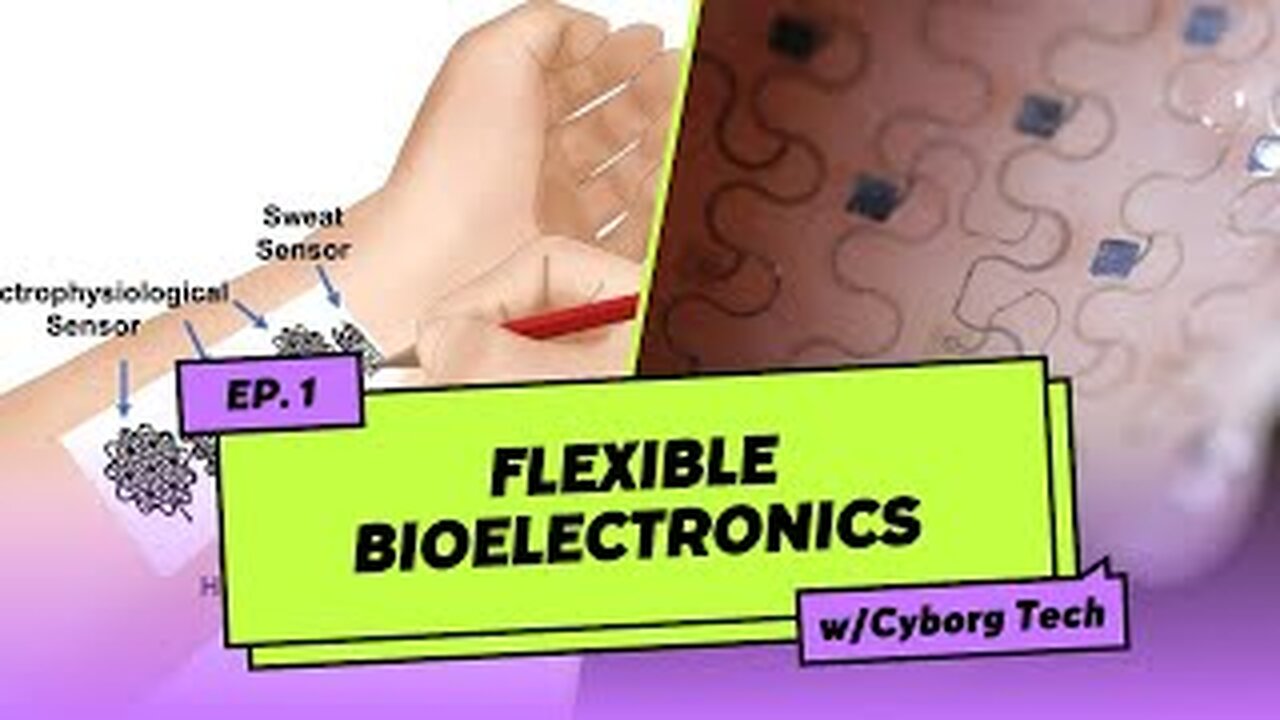Premium Only Content

Flexible Bioelectronics || Advanced Bioelectronic Technology
Flexible bioelectronics are electronic devices and systems that can conform to and interact with biological systems such as tissues, organs, and cells. These devices are usually made of flexible materials such as polymers, and can be woven or printed onto a flexible substrate.
Flexible bioelectronics have numerous applications in medicine, such as biointegrated implants, smart prosthetics, and wearable health monitors. They can be used to measure physiological signals such as heart rate, blood pressure, and brain activity. They can also be used for drug delivery and tissue engineering.
One of the major advantages of flexible bioelectronics is their ability to conform to the body, which reduces the risk of tissue damage and improves the accuracy of measurements. Additionally, they are often less invasive than traditional medical devices, which can lead to better patient outcomes and reduced healthcare costs.
Despite their potential benefits, there are still challenges associated with flexible bioelectronics, such as biocompatibility, stability, and durability. However, researchers are working to develop new materials and fabrication techniques to address these issues and unlock the full potential of flexible bioelectronics in medicine.
#flexiblebioelectronics #cyborg #electronics #research
#heart #stethoscopelover #bioelectronics
-
 1:20:23
1:20:23
Man in America
11 hours agoHow Epstein Blackmail & FBI Cover-Ups Are Fracturing MAGA w/ Ivan Raiklin
178K25 -
 2:13:49
2:13:49
Inverted World Live
7 hours agoSolar Storms Ground 1000 Planes | Ep. 151
106K6 -
 2:54:08
2:54:08
TimcastIRL
7 hours agoJ6 Pipe Bomb Suspect ARRESTED, Worked With BLM, Aided Illegal Immigrants | Timcast IRL
249K122 -
 3:59:02
3:59:02
Alex Zedra
5 hours agoLIVE! Bo7 Warzone
33.4K1 -
 4:37:35
4:37:35
Drew Hernandez
1 day agoCANDACE OWENS / TPUSA STALEMATE & DC PIPE BOMBER CAPTURED?!
57.1K37 -
 12:31
12:31
Robbi On The Record
8 hours ago $5.02 earnedWhy Nothing Feels Real Anymore | The Science, Culture, and Spiritual War Behind the Fog
41.8K10 -
 18:42
18:42
Navy Media
8 hours agoHouthis ATTACK the Wrong U.S. Fighter Jet – Then THIS Happened…
44.2K41 -
 40:24
40:24
MetatronGaming
2 days agoSomething is REALLY Wrong with this apartment...
34K2 -
 LIVE
LIVE
SpartakusLIVE
7 hours agoHUGE NEW UPDATE - Aim Assist NERF, New META, New MOVEMENT || #1 King of Content
798 watching -
![battlefield 6 with the crew! [RGMT CONTENT Mgr. | RGMT GL | GZW CL]](https://1a-1791.com/video/fwe2/7f/s8/6/w/D/y/F/wDyFz.0kob.19.jpg) 2:32:26
2:32:26
XDDX_HiTower
6 hours ago $3.92 earnedbattlefield 6 with the crew! [RGMT CONTENT Mgr. | RGMT GL | GZW CL]
39.2K